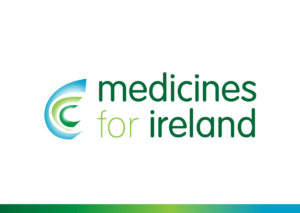Patient access to medicines at risk due to the disproportionate impact of the UWWTD Extended Producer Responsibility (EPR) scheme on generic medicine suppliers
Medicines for Ireland (MFI) has today (27.03.25) warned about the devastating impact of the cost of implementation of the Urban Wastewater Treatment Directive (UWWTD) on the supply of the majority of medicines for Irish patients.
The warning comes after several generic medicines suppliers, supported by Medicines for Europe, filed a legal case with the Court of Justice of the European Union against the creation of an Extended Producer Responsibility (EPR) scheme under the Urban Wastewater Treatment Directive (UWWTD). The legal action seeks to avoid a discriminatory and disproportionate cost burden on generic medicines, therefore safeguarding patient access to vital medicines.
Generic medicines are the mainstay of most patients medicine cabinets, they generally are the lowest cost medications, representing nearly 60 per cent of all prescriptions in 2023. As such, it’s anticipated that generic medicine suppliers may be expected to shoulder the bulk of the financial cost under the EPR scheme for removing micropollutants from urban wastewater. This fails to recognise the extremely tight margins given the pricing models for generic medicines.
Donagh O’Leary, chair of the MFI UWWTD working group said: “Based on the modelling conducted by our colleagues in Medicines for Europe, the real impact of the UWWTD will lead to a tsunami of medicine shortages. We are extremely concerned that the UWWTD will place disproportionate financial and operational burdens on the generic pharmaceutical industry, hindering the supply of medicines to millions of Irish patients.”
“The directive’s flawed Extended Producer Responsibility (EPR) system unfairly targets pharmaceutical companies, forcing them to cover the lion’s share of costs for removing residues from wastewater. We know that these residues originate from many other sectors beyond pharma and the establishment of an EPR under the Directive must recognise this to spread the cost fairly. We are urgently calling for the Commission to undertake a new impact assessment. In addition, an urgent reviewof the UWWTD is needed to ensure patient access to essential medicines is not burdened by cost.”
The European Commission estimates €1.2 billion annually for EU-wide Extended Producer Responsibility (EPR) in its impact assessment. However, the feasibility study used for the impact assessment only assessed 12 molecules, of which hazardousness data was not available for 7 of them. This is not a reliable sample for the thousands of pharmaceutical molecules.
National regulators and the water industry have estimated much higher costs than the European Commissions. For example, the German Environment Agency estimates costs for Germany alone at €885 million – €1.025 billion annually, nearly four times the Commission’s projection of €238 million. EurEau estimates annual per capita costs at €8 – €25, translating to EU-wide costs of up to €11.3 billion annually. These discrepancies highlight the need for accurate cost assessments to avoid jeopardising medicine supply.
Mr O’Leary concluded: “MFI and our colleagues in Medicines for Europe fully support initiatives to improve environmental sustainability. However, while the EPR framework claims to encourage the development of “greener” medicines, it fails to recognise the complexities of pharmaceutical design, where reformulation is often impractical without compromising the safety and effectiveness of the medicine. MFI remains committed to working with all stakeholders to develop practical and sustainable solutions that safeguard the environment and patient access to essential medicines.”
For more information about Medicines for Ireland, visit: www.medicinesforireland.ie.








